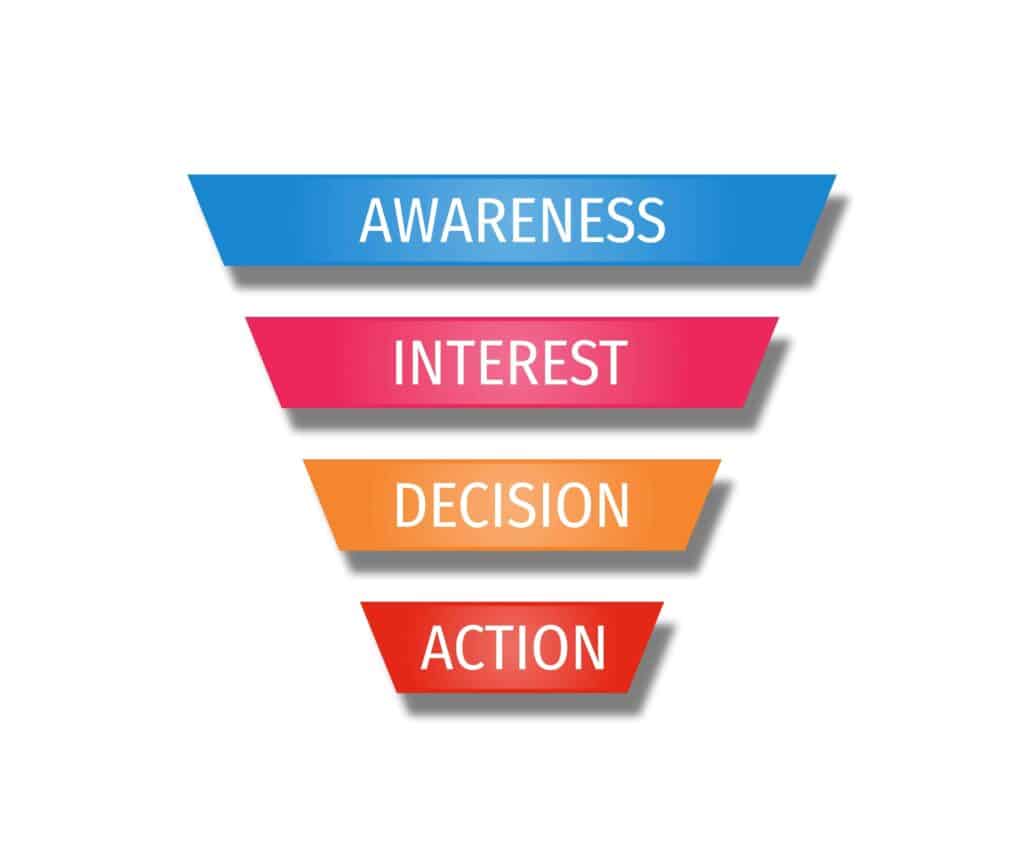
Create The Perfect Life Insurance Sales Pitch
Did you know at least 3 in 4 American adults purchase a specific type of life insurance annually? Most buyers are confident that life insurance can provide financial security for their loved ones if something happens to them. However, many life insurance agents struggle to make sales as they lack practical pitching skills.
As an insurance agent, creating an engaging sales pitch that resonates with potential customers and motivates them to purchase is crucial. With the ideal life insurance sales pitch, you can ensure the clients understand the policy’s importance and how it can help protect their families.
Keep reading to understand the different types of life insurance and their main selling points.
Types of Life Insurance
Clients will have different needs, so it’s essential to understand the different life insurance policies. It can allow you to find a policy that best matches the client’s particular needs and budget.
It can also give you better leverage in designing your life insurance sales pitch to interest the client to purchase the policy. The three common types of life insurance include term, whole life, and universal life insurance.
Term Life Insurance
Term life insurance policies can provide coverage for a specific time, such as 10, 15, or 20 years. It can provide death benefits if the policyholder passes away until the term ends.
For example, If a policyholder purchases a policy of 20 years and passes away after 18 years, the policy’s beneficiaries will receive the death benefits. However, if the policyholder survives until the end of the term, they won’t receive any benefits.
The policy is more affordable and can be a great option for younger individuals looking for financial protection during their working years.
Whole Life Insurance
Whole life insurance can provide lifetime protection for the insured and accumulate cash value over time. It is more expensive, but the death benefits are guaranteed, and the policy can be borrowed against.
For instance, if the insured borrows against the policy and passes away, the debt amount will be deducted from the death benefit before disbursing it to the beneficiaries.
This policy is suitable for individuals who want financial protection for their families even after they are gone. It can also be a great option for individuals looking to accumulate wealth.
Universal Life Insurance
A universal life insurance policy combines the features of both term and whole life insurance policies and offers an adjustable death benefit. It can provide a cash value component with flexible premiums, allowing the policyholders to adjust their payments depending on their needs and budget.
This policy is more expensive than other options, but it can be a great option for individuals who want more flexibility in their life insurance policy.
Main Selling Points of Life Insurance
Life insurance can provide the policyholders and their loved ones financial security if something happens to the insured. It is essential to understand the main selling points of life insurance so you can create a compelling sales pitch that resonates with the potential customer.
Here are some of the main selling points for life insurance:
- Security
- Peace of Mind
- Tax benefits
- Investment
- Affordability
Understanding these selling points can help you create a compelling sales pitch for your customers and increase their chances of purchasing a life insurance policy.
Insurance Sales Tip: Things to Consider When Selling a Life Insurance
When selling a life insurance policy to a potential client, there are some things you should consider to ensure the sale goes smoothly.
You can start by asking the potential customer some questions to get an understanding of their needs. It can help you recommend suitable policies that fit their budget and lifestyle.

Here is a comprehensive analysis of things you should consider before recommending a policy to a potential client:
Financial Situation
Different policies demand different premium payment rates. For instance, a whole life policy is more expensive than a term policy. So, it is crucial to understand the client’s financial situation before selecting a specific policy.
You can ask them about their income, assets, and debts to understand their financial situation. You can also suggest flexible policies such as universal life insurance that can allow them to adjust the premiums according to their budget.
Life Goals
Understanding the customer’s life goals can help you align their objectives with the specific policies.
For instance, a customer looking to save money for retirement can opt for a whole-life policy that accumulates cash value. A different customer looking for short-term coverage may be better suited to a term policy.
You can ask them questions about their life goals using metrics such as age, family size, and other future plans to provide them with a suitable policy.
You can also suggest investment-oriented options such as variable and universal life insurance policies, which can offer the client more flexibility to accumulate wealth over time.
Risk Tolerance
Most life insurance policies come with a certain amount of risk. For instance, a whole life policy guarantees fixed premiums and death benefits, but the cash value component is subject to market fluctuations.
Understanding the client’s risk tolerance can help you figure out the best policies. If they are more risk-averse, you can suggest policies with fixed premiums and death benefits that can offer more security.
If they are more inclined towards investments, then you can suggest policies with cash value components.
Existing Coverage
Before recommending a life insurance policy to a potential client, you should understand if they already have any existing coverage. The client can offer their experience and opinion about their current policy, which can speed up the selection process.
You can also understand why the client’s current policy disinterests them and offer lower premiums if they feel a financial burden.
Policy Benefits
A client’s understanding of the policy benefits they gain can increase their interest. You can explain to them how their policy can provide financial security for their family’s future.
You can also discuss how the insurance plan can ensure their assets are passed on to their loved ones if they pass away.
Improve Your Life Insurance Sales Pitch and Get More Clients
When selling life insurance, it is important to understand the customer’s needs and goals. Once you understand their circumstances, you can recommend policies that fit their budget and life goals.
You can consider their existing coverage, financial situation, risk tolerance, and policy benefits to make the most suitable recommendation. With a comprehensive knowledge of the customer’s needs, you can create an effective life insurance policies sales pitch that will help you get more clients.
If you’re looking to take your life insurance sales to the next level, don’t wait any longer. Art Life Insurance Agency is here to help.
With a team of experienced professionals, cutting-edge tools, and a commitment to helping agents succeed, our team here at Art Life Insurance Agency can help you take your sales techniques to the next level.
Get in touch or schedule an appointment with us today to learn more about creating the best insurance sales pitch and start realizing your full potential in the industry.

FAQs
How do I introduce myself as a life insurance agent?
When introducing yourself as a life insurance agent, it’s important to make a strong first impression and establish trust with your potential clients. Here are some key elements to include in your sales pitch:
Start with your name: Begin by stating your name clearly and with a friendly tone.
Mention your profession: Let the person know that you are a life insurance agent and what you do.
Explain your goal: Highlight the purpose of your role and why you got into this field, such as helping families protect their financial future or providing personalized insurance solutions.
Emphasize your expertise: Demonstrate your knowledge and experience in the industry, and let the person know that you are equipped to help them make informed decisions about their coverage.
Ask for their needs: Find out if the person is currently in need of life insurance or if they are simply looking for helpful information. This will help you tailor your conversation to their specific needs and show that you are there to help.
Make sure to clearly explain the value you can bring to the person. When introducing yourself as a life insurance agent, it is important to be friendly, confident, and knowledgeable.
How can I promote my life insurance sale?
Here are some strategies you can consider when trying to promote your life insurance sales so you can reach a wider audience and generate more leads:
Networking: Attend local events, join community organizations, and connect with other professionals to expand your network and find potential clients.
Social Media Marketing: Utilize social media platforms, such as Facebook, LinkedIn, Clutch, Alingable, etc., to promote your services, share industry news and insights, and engage with your followers.
Content Marketing: Create and share informative blog posts, videos, or podcasts about life insurance and financial planning to educate your audience and establish yourself as a knowledgeable resource.
Referral Marketing: Encourage your satisfied clients to refer their friends and family to you, and offer incentives for referrals.
Direct Mail: Reach out to potential clients with personalized direct mail pieces, such as postcards or brochures, to promote your services and provide information about life insurance.
Seminars & Workshops: Organize or participate in seminars or workshops to educate people about the importance of life insurance and the different options available.
Remember to always focus on building relationships and providing value to your clients, as this will help establish trust and lead to more sales over time.
How do I get life insurance clients without buying leads?
These are some unique ways you can get life insurance clients without buying leads:
Host events: Organize seminars, workshops, or community events to educate people about the importance of life insurance and the different options available.
Online Webinars: Offer virtual webinars to educate people about life insurance and the value it can bring to their financial future.
Leverage Personal Connections: Utilize your personal network, including friends, family, and former colleagues, to introduce yourself as a life insurance agent and discuss the services you offer.
Provide Value-Added Services: Offer additional services, such as financial planning or estate planning, to provide more value to your clients and differentiate yourself from other agents.
Collaborate With Local Businesses: Partner with local businesses to co-promote your services and reach a wider audience.
Focus On a Niche Market: Specialize in serving a specific demographic or market, such as young families or small business owners, to differentiate yourself and attract more targeted leads.
Utilize Customer Testimonials: Share positive feedback and testimonials from satisfied clients to build credibility and attract new business.
By thinking creatively and leveraging a variety of marketing strategies, you can successfully reach and attract new life insurance clients without purchasing leads.
How do I convince my client to buy life insurance?
Convincing a client to buy life insurance requires a thorough understanding of their individual needs and financial goals, as well as a clear explanation of the benefits of life insurance. Here are some steps to follow when trying to convince a client to buy life insurance:
-
Assess their needs: Ask questions to understand their financial situation, including their income, debts, assets, and dependents.
-
Explain the benefits: Emphasize how life insurance can provide financial security for their loved ones in the event of their death, and help them meet their long-term financial goals, such as retirement or college planning.
-
Address their concerns: Address any objections or concerns the client may have about life insurance, such as cost or perceived complexity.
-
Customize the solution: Offer a customized insurance solution that meets their individual needs and budget, and highlight the different options available, such as term life insurance or permanent life insurance.
-
Build trust: Establish trust by explaining the claims process and the stability of the insurance company you represent, and providing transparent information about the policy terms and conditions.
